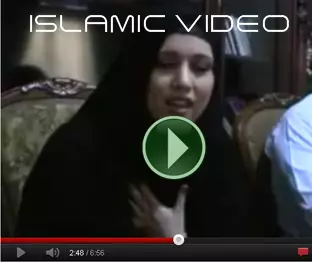Outraged by cuts to living standards, more and more people are turning to radical politics and even violence.
FIVE years into the great recession that has plagued Europe and brutally cut living standards, the armies of the new poor are increasingly desperate. Street protests about lost hope are turning violent as once liveable suburbs have become impoverished breeding grounds for the disenchanted, who are turning to extremist political movements in an economically ruined Europe.
The new poor want what they had before the meltdown: a job, education for their children and food on the table, and they want a way out of the unique underclass that is now part of the demographic of many countries in Europe.
In this underclass, unemployed migrants as well as the educated and the skilled are bound by a common thread: the system has failed them all.
Political analysts across Europe say that the disenchanted are increasingly turning to the extremists from the far right and the far left, feeling that their governments have let them down.
”This is the greatest challenge before Europe,” says Dr Magnus Ranstorp, an expert in terrorism and political violence from the Centre for Asymmetric Threat Studies in Sweden. He is alarmed by the swing to the extremes of politics, made worse by poverty and the backlash against migrants and Muslims since the terrorist attacks of September 11, 2001.
”Now you have not only huge immigration issues, but also segregation of populations … unspeakable social degradation and exclusion of people from society that is the result of discrimination, overt or hidden, and that has led to a pretty vast underclass,” says Ranstorp.
”You actually have parallel societies in some states. It is a huge challenge for most states to be able to tackle the conditions that have contributed to this social segregation. Political parties would do well to study how to clip the wings of right-wing and extreme left-wing parties.”
While the extremist politics of Europe, particularly from the far right, recall the ”rivers of blood” scenario envisioned by conservative British politician Enoch Powell when criticising immigration in 1968, the situation is more dangerous now as groups ranging from the extreme right to the anarchists seek support among those crushed in the economic meltdown.
That’s what happened in Greece, says Ioannis Konstantinidis, associate professor of political science at the University of Macedonia, Thessaloniki. The huge number of Greeks who voted for the anti-migrant, anti-Muslim, neo-Nazi Chrysi Avgi (Golden Dawn) party, should not, he says, be seen as supporting racism, but rather as responding to their dire economic situations. ”These people [Golden Dawn] are really dangerous,” says Konstantinidis. ”But the fact is they got this percentage [of the vote] under very strange circumstances.”
Last week, as Greece failed to form a government, the leader of Golden Dawn – it got 6.9 per cent of the vote in national elections, 25 times more than two years ago – played to form by insisting there were no gas chambers in German wartime concentration camps, and that the figure of 6 million dead Jews was an exaggeration.
That Nazi and anti-migrant rhetoric has spilled over into violence in recent times. Ten months ago, right-wing extremist Anders Breivik killed 77 people in Norway.
The murders in December of two Senegalese traders in Florence by Gianluca Casseri, who had links to Italian fascist organisation CasaPound, shocked the country. The country’s president, Giorgio Napolitano, described the killings as a ”blind explosion of hatred”.
The terrorist threat increased dramatically in Italy last week, where 20,000 military and police officers guard 14,000 installations and 550 individuals 24 hours a day against terrorists. The government has now added 400 more offices, installations, and business and public officials to the protection list.
The number of people needing protection is likely to increase in the wake of the Interior Ministry sending out a national alert on possible terrorism linked to protests about the lack of work, and possible attacks on public servants such as tax officials. The main threats come from the new Red Brigades and the anarchists, who are capitalising on the impact the downturn and the government’s austerity measures are having on Italians.
Tax offices in Italy have been firebombed, reportedly by anarchists. Last week in Genoa, the Federazione Anarchica Informale kneecapped an executive from a nuclear engineering company, part of the Finmeccanica industrial conglomerate.
In a Milan court, members of the new Red Brigades who are appealing sentences they received on terrorism, arms and conspiracy charges pledged, amid cries of ”Viva la rivoluzione”, to continue the armed struggle. Now the army is to protect tax offices and Finmeccanica.
The political tapestry of Europe is complicated, however. Three years ago, 29 right-wingers were elected to the European Parliament, some from parties that have parlayed xenophobia and racism into votes. But the ascendency of right-wing political parties is being challenged from the left.
The far right did well in Greece, but the far-left party Syriza did even better with 16.78 per cent of the vote. The socialist Pasok got 13.18 per cent, the communist KKE 8.48 per cent and the moderate Democratic Left 6.1 per cent. In France, the socialist Francois Hollande is now President. The right got hammered in Italy’s local elections last week. A week before, the far-right British National Party was wiped out in Britain’s local elections.
”Everybody is concerned about some of the limited wins by the far right,” says Dr Nafeez Mosaddeq Ahmed, executive director of the Institute for Policy Research and Development in Britain, who sees a clear correlation in those wins with the expansion of the recession, the deepening of the eurozone crisis, and racism. ”France and Greece are good examples of how polarised society can become [with] the scapegoating of certain groups that are described as parasitical on the economy,” says Ahmed, author of A User’s Guide to the Crisis of Civilisation: and How to Save It.
But the traditional far right is changing, says Matthew Collins, a one-time leading member of the British National Front. ”In northern and western Europe, it is more culturally conservative and Christian-based, whereas in other parts of Europe they cling to anti-Semitism and racial superiority as themes.
”The new right want to turn Europe into some kind of fundamentalist Christian continent,” Collins says, adding that the new far right ”is equally dangerous”. Collins is a member of the England-based Hope Not Hate party that for years has worked electorally to crush the far right. He sees the defeat of the British National Party (BNP) in the recent local elections as partly the result of that campaign.
”Next, we will launch the biggest campaign ever to remove any [far right] member of Parliament, British or European, and that will be the British member of the European Parliament and chairman of the BNP, Nick Griffin,” says Collins.
The new right has also changed some of its rhetoric from the anti-Semitism of hate-the-Jew to the Islamophobia of hate-the-Muslim. New adherents are from the digital age. They have September 11, the 2005 London terror attacks and new digital media in their arsenals to get people to fear and hate Muslims and migrants.
Right-wing extremism is very much based on the internet and Facebook, says Sweden’s Magnus Ranstorp. ”They have a physical base as well, from Norway to Sweden to northern Europe, and recently they gathered in Denmark to make a European alliance. It is now pan-European, which is a worrying trend.”
The growth in support for the radical right and radical left is widely ascribed to failures by governments and centre left and right parties to respond to citizen concerns. ”They gave an opening to these [far-right] parties because they were not addressing their legitimate concerns … immigration, radical Islam,” says David Rusin, research fellow at the Philadelphia-based Islamist Watch, which monitors militant Islam in the West. He sees dangers in both the anti-Islam push and in radical Islam.
Jonathan Laurence, associate professor of political science at Boston College and author of The Emancipation of Europe’s Muslims, believes the fact that one-fifth of the French electorate voted for Front National shows ”serious fault lines” in terms of satisfaction with government, particularly as the front’s members ”do not hesitate to play fast and loose with some pretty vile politics”.
But Laurence, also a senior fellow in foreign policy at Washington’s Brookings Institution, warns that those who voice legitimate concerns about what is happening in their countries cannot be ignored. ”We have to be careful not to demonise people who want to protect their borders. Obviously, illegal immigration cannot be accepted,” says Laurence, who deems the refusal to address such fears ”a failure of democracy”.
Gianfranco Baldini, from the political science department at Bologna University, sees dangers there, too. He thinks elements of the swings to the far right have historically been cyclical, but that changed a lot with September 11. He also believes the fragmentation of the vote for mainline parties that do not respond to voter concerns will present significant threats for all.
In Britain, warns Ahmed, Muslims continue to be victimised just for being Muslim, adding to a polarisation that can breed violence on all sides. He fears that unless the racial and religious hatred fusing with the economic crisis is confronted, Europe may repeat the history of the 1930s.
”The similarities [to pre-war Germany] are quite worrying. I am not saying we are heading down the same trajectory. But if we look at 1930s Europe, we are seeing the same kind of rhetoric. The lesson we can learn is that unpredictable things can happen … the blanket demonising of Muslim minorities in Europe,” he says.
”We have seen legislation that is largely targeting Muslim communities. Look at Geert Wilders [leader of the Freedom Party in the Netherlands]. He has repeatedly talked about internment and the need to expel Muslims if they are considered to be against society.”
As Greece prepares to again go to the polls, Austrian filmmaker Fabian Eder is putting the finishing touches to a documentary, Greece In Bloom, A Spring Odyssey. It concerns what people in the islands and the interior have to say about those responsible for plunging their country into chaos.
When Eder stopped filming for the day, some of his subjects would tell him off camera what they thought should happen in the real Greece. ”Bring back the junta,” they said, referring to the right-wing military governments that ruled Greece after the 1967 coup d’etat.
”The people who said that were older Greeks, over 60, but I was still shocked,” says Eder, who believes, nevertheless, that he has captured the real beauty and humanity of Greece, which, he says, is not the Greece of the neo-Nazi Golden Dawn.
Laurence is also cautiously optimistic that Europeans can get beyond the polarisation. He says Europe is far away from its darkest days. ”It is not out of the woods … But voters have come a long way from the brown-shirted March on Rome and the Nazi salute. Voters are turned off by that.”
SOURCE:smh.com.au














